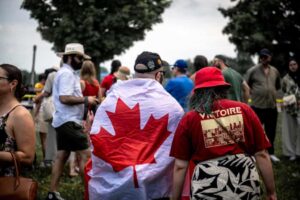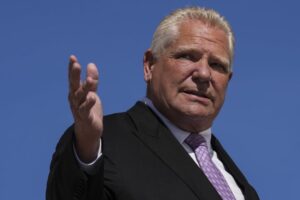
A large number of Canadian diplomats left India overnight, CBC News has learned.
The departures followed two weeks of negotiations between India and Canada after India issued a demand for “parity” in the number of diplomats present in the two countries, a source with knowledge of the situation told CBC News.
That demand was part of an angry reaction by the government of Prime Minister Narendra Modi to Prime Minister Justin Trudeau’s allegation last month that Indian agents were involved in the murder of a Canadian citizen, Hardeep Singh Nijjar, in Surrey, B.C. on June 19.
India claimed to have only 21 accredited diplomats in Canada and said that Canada had 62 in India, spread across its High Commission in New Delhi and four consulates in Mumbai, Chandigarh, Kolkata and Bengaluru.
New Delhi gave Canada until October 10 to withdraw 41 diplomats to make the two diplomatic contingents equal in size. If the diplomats remained in the country, India said, they would lose their diplomatic immunity from arrest and prosecution.
But Canadian officials allowed the deadline to pass while they continued to talk to the Indian side.
Those conversations now appear to have come to an end.
Canadian officials have questioned India’s arithmetic, which they say does not give an accurate picture of the respective sizes of the two diplomatic missions.
India’s claim to have only 21 accredited diplomats in Canada appears to conflict with the registry of accredited foreign representatives in Canada, which shows that India has 60 in Canada.
It’s not clear whether Canada will retaliate against the Indian move with further expulsions.
Global Affairs Canada has not publicly announced the overnight departure and refused to confirm it when asked by CBC News.
The Indian demand came as a rude surprise for Canada, as it represented a dramatic escalation from the earlier tit-for-tat expulsions.
“I can’t think of another instance … short of breaking diplomatic relations with another country and taking everybody out,” said Gar Pardy. “I can’t think of another incident over the last 40 or 50 years where something like this has happened. Even in our worst days of our relationship with the Soviet Union, usually there were smaller numbers are involved.”
Former Canadian diplomat Jeff Nankivell, president of the Asia Pacific Foundation of Canada, agreed that the sanction was extraordinary.
“I can’t think of a of a precedent, certainly no precedent in the Canada-India relationship, and to do it on on the scale that is being reported certainly would be a significant drag on Canada’s diplomatic operations across India,” he said.
Nankivell said Canada needs large consular operations in India to handle the volume of visa applications from that country, which is both the top source country for international students to Canada and the top source country for immigrants to Canada overall.








